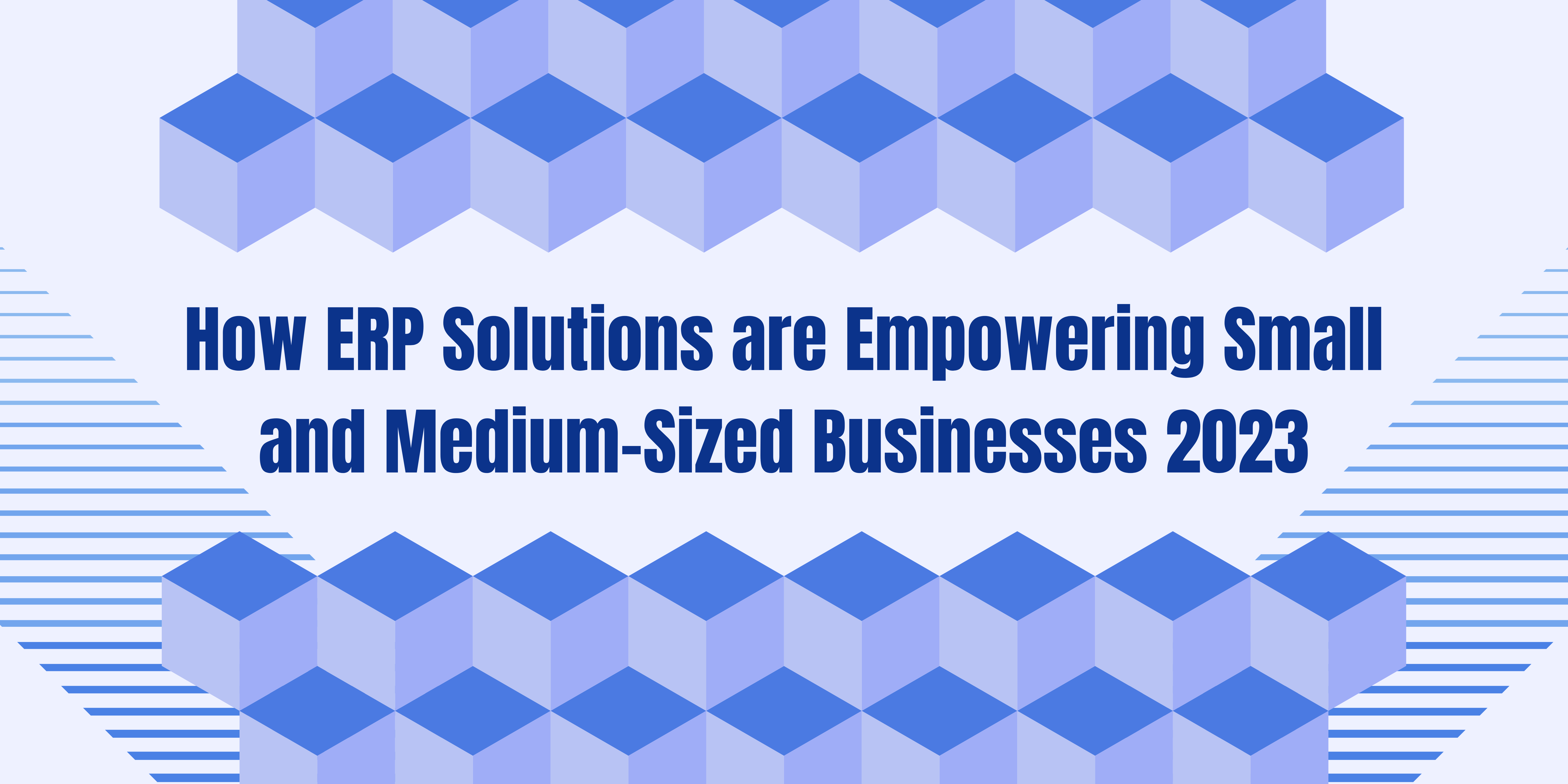Benefits of ERP for small and medium-sized enterprises?
Why small and medium-sized enterprises (SMEs) are facing increasing pressure to stay competitive, improve efficiency, and streamline operations. One solution that is proving to be a game-changer for SMEs is Enterprise Resource Planning (ERP) software. In this article, we’ll explore how ERP solutions are empowering SMEs and the benefits they offer.
What is ERP?
ERP is a software system that integrates all of a business’s core functions into a single, unified platform. This includes accounting, inventory management, sales, purchasing, human resources, and more. ERP systems enable businesses to automate and streamline their operations, improve data accuracy, and make better decisions based on real-time information.
How ERP is Empowering SMEs
- Better Decision-Making: ERP systems provide SMEs with real-time access to critical business information, enabling them to make better-informed decisions quickly.
- Improved Efficiency: ERP systems automate and streamline business processes, reducing the need for manual data entry and increasing productivity.
- Enhanced Collaboration: ERP systems provide a single source of truth for all business functions, enabling teams to work together more effectively and avoid miscommunications.
- Scalability: ERP systems are designed to grow with your business, providing the flexibility to add new functions and modules as your needs evolve.
- Cost-Effective: ERP systems can help SMEs reduce costs by eliminating redundant processes, reducing errors, and improving productivity.

ERP for Small and Medium enterprises
Benefits of ERP Solutions for SMEs
- Increased Productivity: ERP systems automate and streamline business processes, reducing manual tasks and enabling employees to focus on more valuable tasks.
- Improved Data Accuracy: ERP systems provide real-time data, ensuring that business decisions are based on accurate and up-to-date information.
- Enhanced Customer Satisfaction: ERP systems enable businesses to respond quickly to customer needs, improving customer satisfaction and loyalty.
- Better Inventory Management: ERP systems provide real-time inventory data, enabling businesses to optimize inventory levels, reduce waste, and improve supply chain management.
- Greater Visibility: ERP systems provide a single source of truth for all business functions, enabling businesses to have a holistic view of their operations and make better-informed decisions.
Microsoft Dynamics Nav sales tax add-on for small businesses
Microsoft Dynamics NAV (now known as Microsoft Dynamics 365 Business Central) includes a built-in functionality to manage sales tax for businesses. However, depending on your specific needs, you may require additional add-ons or customizations to fully meet your sales tax requirements.
There are many third-party add-ons available that can be integrated with Dynamics NAV to manage sales tax, including those designed specifically for small businesses. One of the examples is Avalala.
Avalara
Avalara is a cloud-based software solution that automates the process of calculating, collecting, and remitting sales tax. It can be integrated with Dynamics NAV to provide real-time sales tax calculations, tax rate updates, and automated filing and remittance of sales tax returns.
Conclusion
ERP solutions are a powerful tool for SMEs looking to streamline their operations, increase productivity, and stay competitive in today’s fast-paced business environment. With benefits such as improved decision-making, enhanced efficiency, and scalability, ERP systems are becoming increasingly popular among SMEs. As a trusted Microsoft partner, SBC Dynamic Solutions is committed to helping SMEs in America and beyond leverage the power of ERP to achieve their business goals.
Share on Social Media
